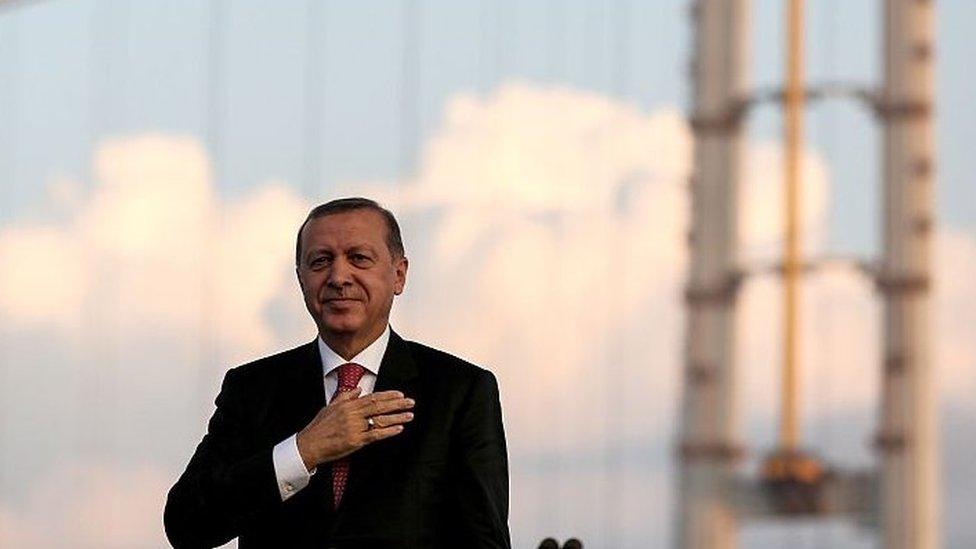Turkey targets 10,000 social media users in 'terror' probe
- Published
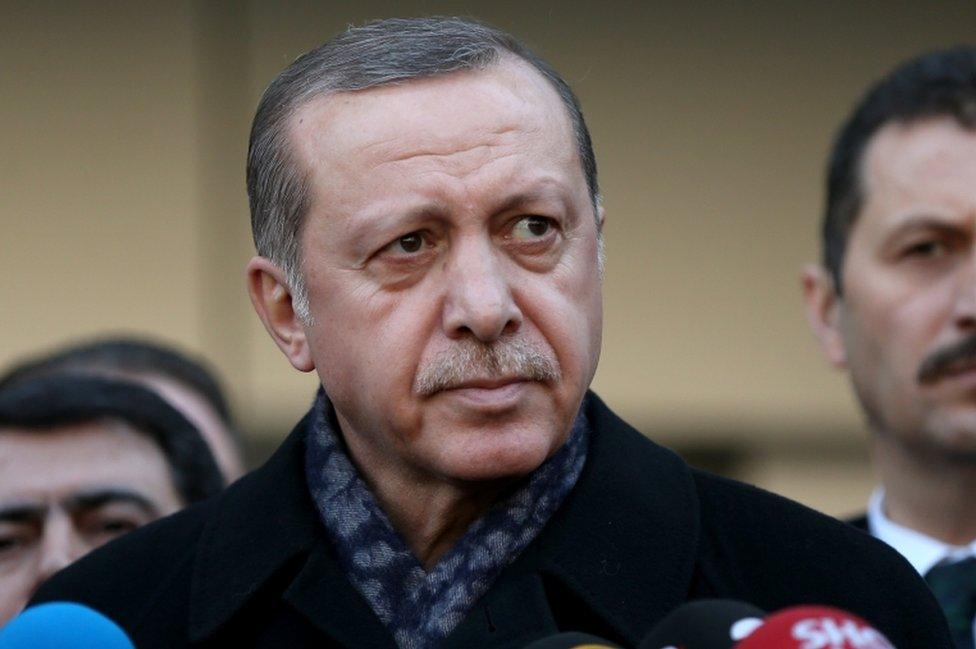
The social media crackdown is being seen as an extension of President Erdogan's purge of "anti-government" individuals
Turkey is investigating 10,000 people on suspicion of using social media to support terrorism, its interior ministry has said.
They are accused of insulting government officials online, or what the ministry called "terror-related activity" on the internet.
The ministry said the fight against terrorism was being carried out "with determination" on social media.
The authorities have held 3,710 people for questioning in the last six months.
Of those, 1,656 have been formally arrested and 84 are still being questioned.
'Calculated blackouts'
Access to social media sites like Twitter and Facebook is often blocked in Turkey, especially after bombings.
Internet monitoring groups believe the outages are calculated blackouts designed to block the spread of militant propaganda.
Turkey denies this, and has blamed past episodes on spikes in internet usage after major events.
Turkey torture claims in wake of failed coup
Erdogan: Turkey's dominant president
Internet use was severely disrupted after Russia's ambassador to Turkey was shot dead on Monday.
Reports suggest Twitter and YouTube have also slowed down since Thursday, when a video emerged allegedly showing two Turkish soldiers being burned alive by the so-called Islamic State.
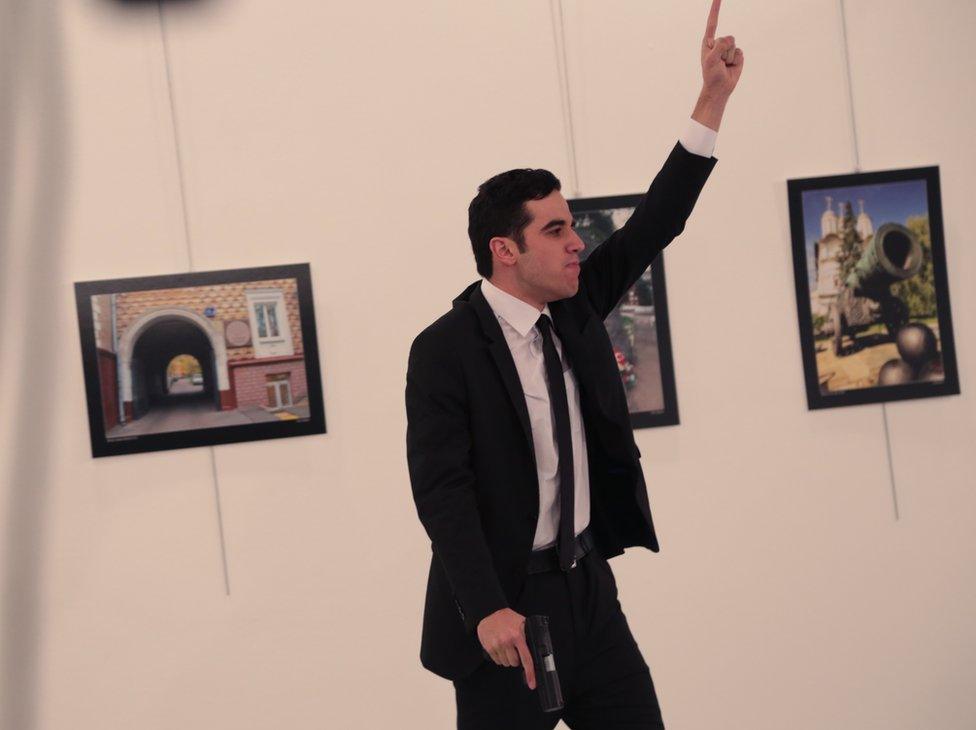
Internet use was disrupted in Turkey after this man killed Andrey Karlov, Russia's ambassador to Ankara
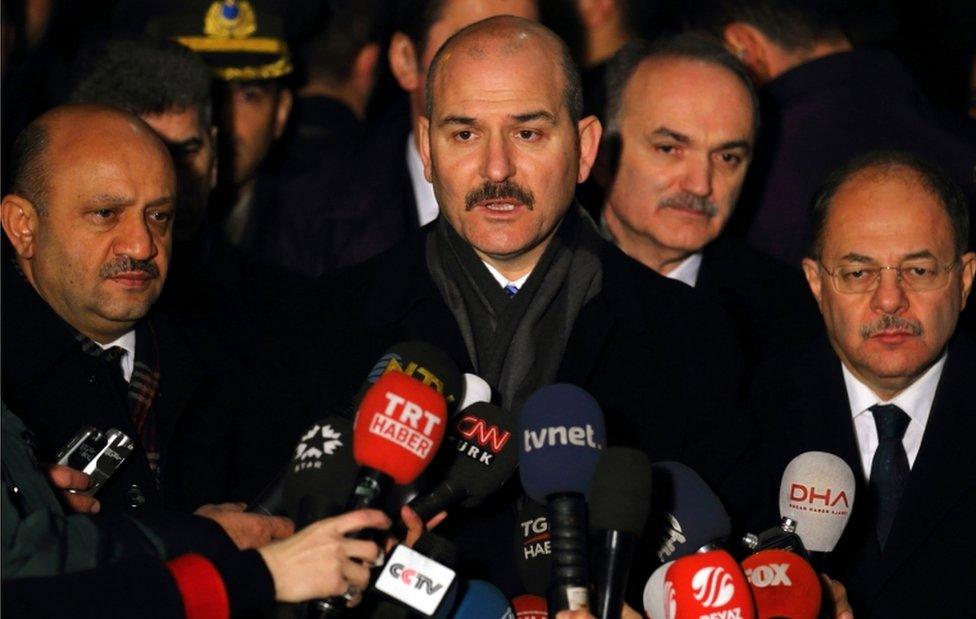
Turkey's Interior Minister, Suleyman Soylu, speaks to journalists after the ambassador's killing
Activists and foreign powers have raised repeated concerns about repression in Turkey since the summer.
After a coup failed to unseat him in July, President Recep Tayyip Erdogan declared a state of emergency and began purging officials, soldiers, teachers, police and judges who were perceived as "anti-government".
Critics say the president is using the state of emergency to tighten his grip on power and stifle opponents.
Since the attempted coup, more than 150 media outlets have been shut down and 140 journalists arrested.
As of November, more than 125,000 state employees had been sacked or suspended.
- Published28 November 2016

- Published25 November 2016
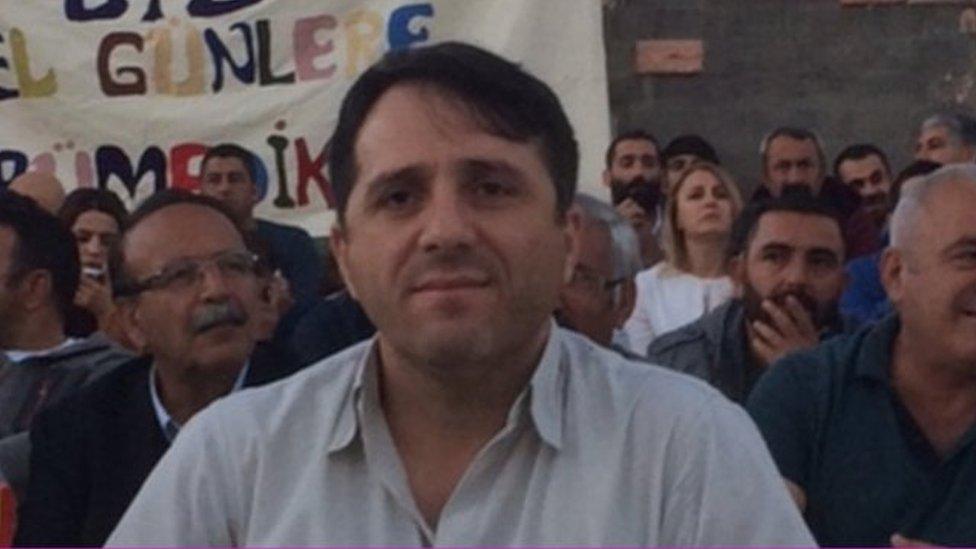
- Published5 November 2016
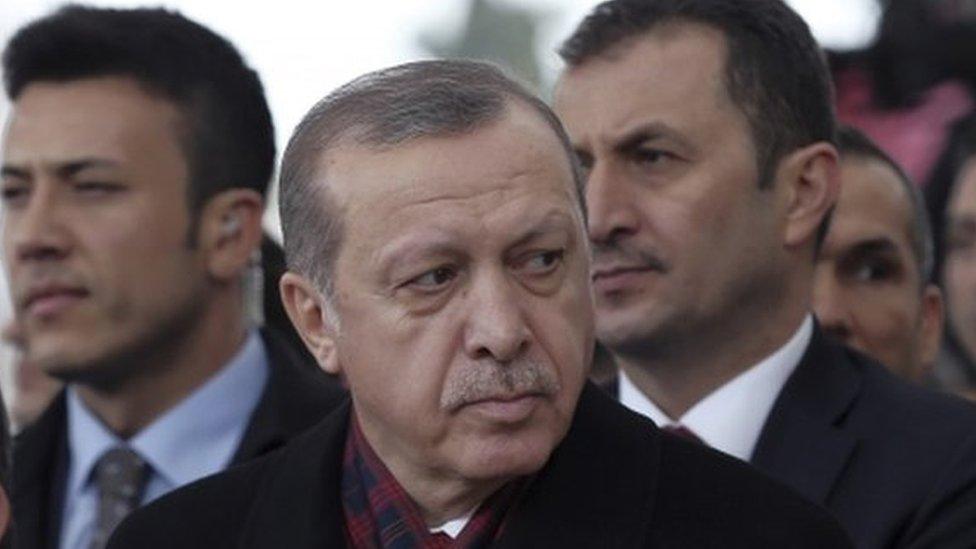
- Published29 July 2016
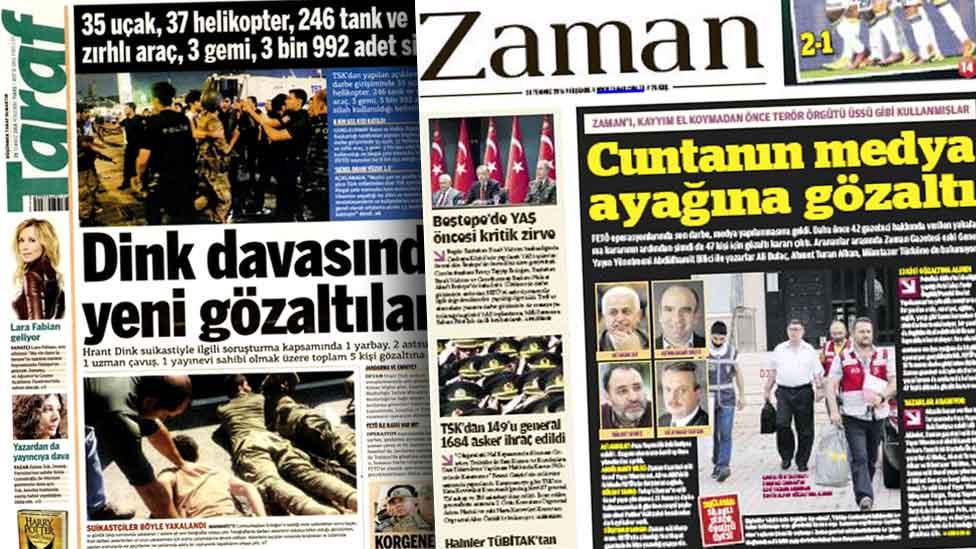
- Published24 March
